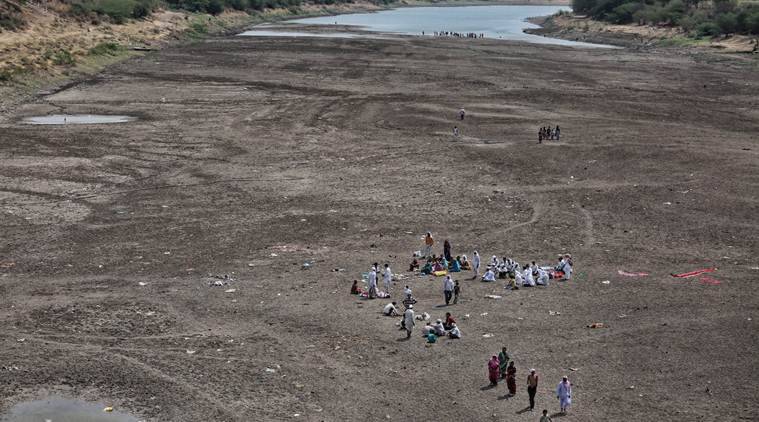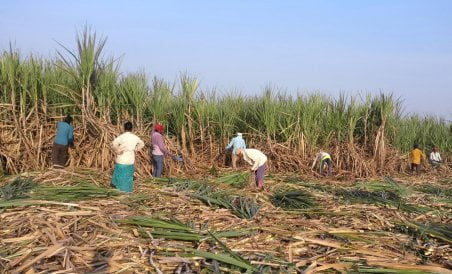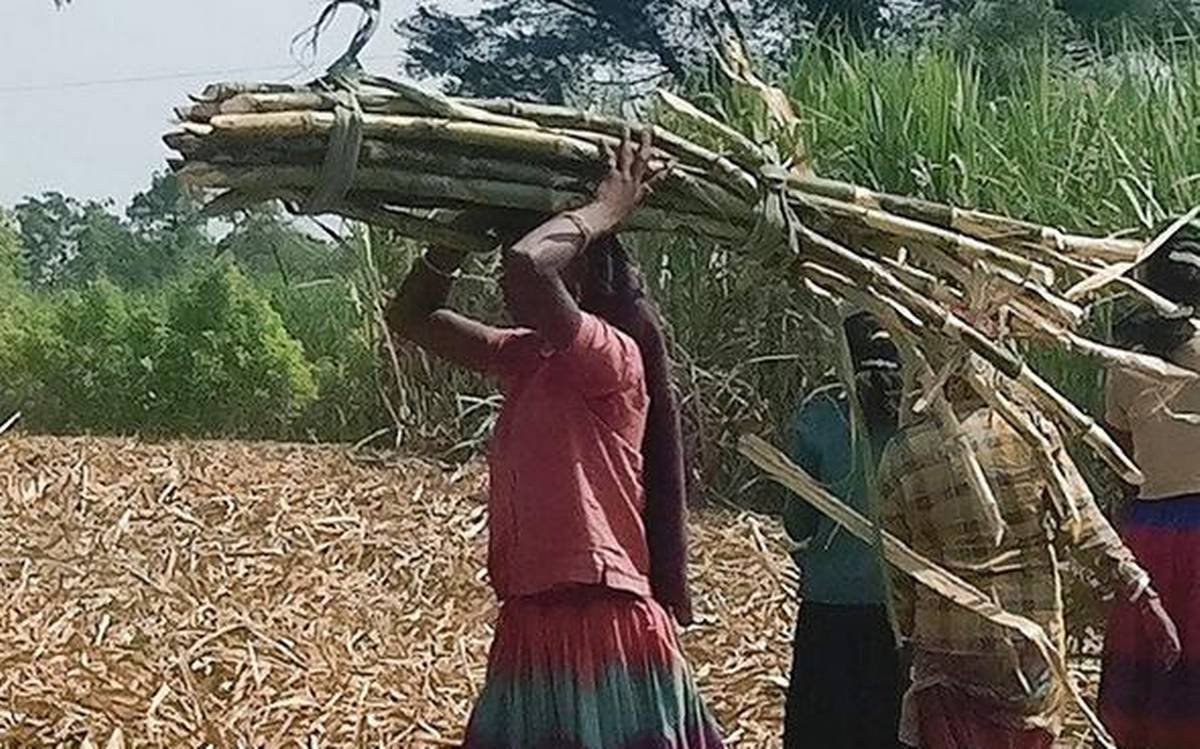As a part of my work on understanding the various aspects of gender-based violence particularly in public and workspaces, I visited Beed, a district in Maharashtra, in 2019 to meet the women working in sugar factories. We met several hundreds of women in multiple villages and were shocked beyond words to find out that there are stretches of villages where women have no uteruses.
Beed is the poorest district of Marathwada. It lies in a rain shadow region with scanty and unpredictable rainfall. Sugarcane cutters, migrant workers and small and marginal farmers are largely the occupants of the district.
A Background

Sugarcane is grown in places like North Karnataka, parts of Beed, Sangli, Satara and some other places. This crop needs a lot of water for cultivation and this in turn further dries up the already dry land. There are no water bunds and other irrigation tools to bring groundwater too, which makes it difficult to do farming in these regions. The population is hence dependent on the wages they can make by working in the sugarcane fields.
To avoid complications of pregnancies and periods While Working In the fields, the women are forced by the family, contractors and doctors to get a hysterectomy.
Sugarcane contractors who work for large landowners and sugar mills hire cheap labour from the Beed belt for six months from November to April every year. They are employed to cut the sugarcane, tie them together, lift and load them onto trucks for taking to the factories for processing. The families migrate to the sugarcane belts and told me that they work there on daily wages of around INR 100.
The Hindu report states that over 5-6 lakhs of people migrate annually to work in the sugarcane cutting industry. While in the fields, these workers are at the mercy of the contractors. The living and working conditions in the field are far from even basic. The harvesting and cutting goes on through nights as well. Women and children suffer from abuse, accidents at work and lack of nutrition.
The Exploitation Of Women Workers

The women are the worst off as they carry large loads and are forced to work even though their menstrual cycles and pregnancies. To avoid complications of pregnancies and periods in the field, the women are forced by the family, contractors and doctors to undergo hysterectomy. The national average for hysterectomies is 3.2% with a median age of 42 years, as per data in NFHS 2016. Similar data for Beed indicates stats above 36% in a 2018 survey by the Maharashtra State Commission for Women.
Also read: Losing Work In The Pandemic: Why Women Workers In Karnataka Protested For 50 Days
The women constantly complain of stomach aches because of bad nutrition, inability to have access to hygienic care during their periods, heavy loads to carry and insufficient postpartum care. To get a hysterectomy done, many of them take a loan of about INR 50,000 from the contractor who then starts to deduct the amount through the six months of labour. Surgeries, often performed by quacks, also means that may lead to serious health hazards like abdomen pains, vaginal infections, cervical problems and also cancers at a young age.
From the interaction with local health department authorities and women workers in the district, it was found that women workers work through their pregnancies and often give birth to the children on the field itself. In the interim between April and October every year, the family gets back to their home with the child before they pack their bags again to leave for the next round of labour in the sugarcane fields. Mothers are generally overworked because of housework and water shortage even when back at the village. All this while, the man whiles away his time waiting for the next sugarcane harvest. The family spends six months at their homes in Beed and the rest of the six months in the sugarcane fields in many parts of Maharashtra and Karnataka. A Reuters report states that contractors, workers and locals are found to be abusive with the children and the women.
Issue of Child marriage
This nomadic existence of the children continues with the family till the girl children turn about 12-13 years. With limited access to school, the rest of their time is spent playing by the sugarcane fields. At 12-13 years of age, girls are married off and the young couples set out together to the fields from the next season on. This is because sugarcane is the sole employment and the field employs only couples. Thus, the cycle of the bonded labour continues for the next generation too.
The life of a woman or child becomes miserable in Beed’s sugarcane fields. The dangers of health, lack of nutrition, abuse and exploitation is certain. Children seldom continue their studies and child marriage with early hysterectomies (to avoid period pains and complications) is a given.
A Groundxero report states that the collector of the Beed devised a circular stating that ‘in case of emergency hysterectomies by private doctors, they should be notified within 24 hours of the procedure, and a monthly report of these surgeries should be sent to the health authorities.’
Also read: How Difficult Is Menstrual Hygiene Management For Women Workers In Indian Textile Industry
The issue of the exploitation of women workers has been raised by these workers themselves along with organisations such as Mahila Kisan Adhikar Manch, Akal Mahila Sanghatan, Jan Arogya Abhiyan, Bharatiya Mahila Federation in front of several women’s rights organisations including the women’s commission, which then pressured the Maharashtra government to take action on the same. The same report also states that the Maharashtra government had set up a committee on 19th June 2019 to investigate the high number of hysterectomies performed in the Beed district. The committee was headed by the Principal Secretary of Health Department.
According to several families and organisations in this region, the drought in Beed continues to be severe and the governments that have been in power in the past 30-40 years have done next to nothing to help them. People in the region suggest that employment should be generated through schemes like MNREGA and the government should find the solution to the problem of water scarcity in the region.
Priya is the founder of Durga, a citizens initiative that equips women and girls deter sexual harassment in public spaces. Though a Chartered Accountant by Profession, Priya realised that she has more interest towards development issues and spent about 10 years with the British Government in India, working on Healthcare and Life Sciences as a National Lead. Priya holds deep empathy and connect with the vulnerable particularly women and girls who are survivors of gender based violence and abuse. This is the passion that makes her run Durga, in Bangalore for the last 10 years, through which she engages with youth to build gender equitable spaces. Priya is also the Lead of Gender Justice and Disabilities at the Azim Premji Philanthropic Initiatives. An avid reader of the different waves of Feminism the world has seen, student of a Masters in Gender and Women Studies, Tedx Speaker and traveller, Priya tries to learn Carnatic music (intermittently) in her spare time. Priya can be found on Facebook, LinkedIn, Twitter as well as here.



